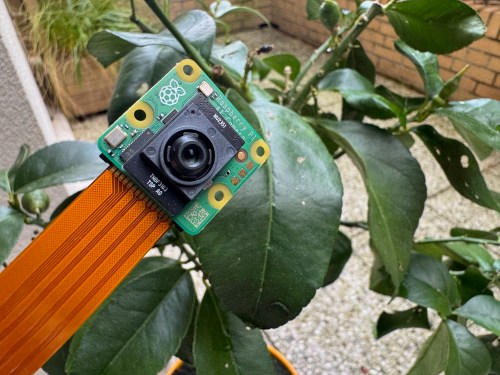Raspberry Pi, the pioneering company behind the affordable single-board computer, is set to revolutionize the way we approach image processing with its latest addition – the Raspberry Pi AI Camera. This innovative module combines a Sony IMX500 image sensor with an RP2040 microcontroller chip, making it an ideal solution for various applications. With on-board AI processing and a price tag of $70, this camera is poised to open up new possibilities in industries such as smart cities, manufacturing, and automation.
What is the Raspberry Pi AI Camera?
The Raspberry Pi AI Camera is an extension module designed to capture images and process them using common neural network models. It features a Sony IMX500 image sensor paired with an RP2040 microcontroller chip, which enables on-board AI processing. This means that the host Raspberry Pi computer remains unaffected by visual data processing, allowing it to perform other operations simultaneously.
Technical Specifications
- Image Sensor: Sony IMX500
- Microcontroller Chip: RP2040 (Raspberry Pi’s own microcontroller chip with on-chip SRAM)
- On-board AI Processing: Yes
- Compatibility: Compatible with all Raspberry Pi computers
Comparison to the Camera Module 3
The Raspberry Pi AI Camera is similar in size to the Camera Module 3, measuring 25mm x 24mm. However, it is slightly thicker due to the structure of the optical sensor. The new module comes pre-loaded with the MobileNet-SSD model, an object detection model that can run in real-time.
Who Will Use the Raspberry Pi AI Camera?
While the original purpose of single-board computers was for tech hobbyists and homelab projects, Raspberry Pi now sells most of its devices to companies using them in their products or assembly lines. The industrial and embedded segment represents 72% of Raspberry Pi’s sales, a ratio likely to increase with the AI Camera.
Potential Applications
The Raspberry Pi AI Camera can be used in various scenarios:
- Smart City Sensors: Detect empty parking spots, track traffic flows, and monitor environmental conditions.
- Industrial Quality Assurance: Use the camera module for basic, automated quality assurance with objects passing under the camera.
- Object Detection: Identify objects in real-time using the pre-loaded MobileNet-SSD model.
Why Companies Choose Raspberry Pi
Raspberry Pi’s ability to produce computers and modules at scale is a significant advantage. With no supply chain constraints and reliable sourcing, companies can integrate Raspberry Pi products into their production pipelines without delays.
Conclusion
The Raspberry Pi AI Camera is an exciting development in the world of single-board computers. Its on-board AI processing, compatibility with all Raspberry Pi models, and affordable price make it an attractive solution for various applications. With its potential to transform industries and tech enthusiasts’ projects alike, the Raspberry Pi AI Camera is a game-changer that deserves attention.
Related Articles
- Researchers Open Source Sky-T1, a ‘Reasoning’ AI Model That Can Be Trained for Less Than $450: Kyle Wiggers (TechCrunch)
- Everything You Missed at CES 2025: Cody Corrall (TechCrunch)
Stay up-to-date with the latest developments in the world of technology by following TechCrunch’s coverage.




